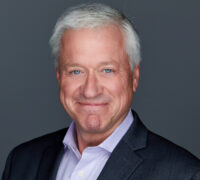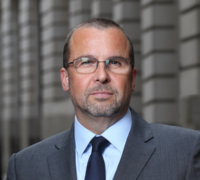1. How do you plan to spend your first official day of retirement?
a. Join a non-profit board and become a school governor.
b. Google “productive things retirees do”, then take a nap.
c. Check my emails constantly – I’m bound to be deluged by ex-colleagues needing my help.
2. What’s your idea of a meaningful retirement project?
a. Launching a mentorship network for young professionals.
b. Finally learning a foreign language. Or maybe the ukulele. We’ll see how the week goes.
c. Training the dog to go for a walk on its own.
3. You’ve been invited to speak at a conference. Your reaction?
a. Of course. I’ve already prepared slides, a TED-style opening, and a themed playlist.
b. Maybe – if it’s somewhere with good food and no dress code.
c. Only if I can do it virtually – from my hammock, in a bikini.
4. Your LinkedIn profile still says, “Open to work.” What will you actually be doing?
a. Consulting part-time and guest lecturing.
b. Dabbling. Light dabbling. Maybe heavy dabbling in summer.
c. Mostly doomscrolling and liking cat memes.
5. When asked what you really do now, you plan to say:
a. I help people grow.
b. I schedule invitations to lunch with friends. And some ex-colleagues.
c. A little bit of this, a little bit of that… I’m in my “experimental” phase.
What your results say about your planned retirement activities
Mostly As: You’ve swapped your executive title for Chief Fulfilment Officer. Your new life will bring you excitement, joy, and a renewed sense of self.
Mostly Bs: You’ve obviously given some thought to what comes next, but retirement will be much more fulfilling if you plan how to imbue it with purpose.
Mostly Cs: You might be in for a shock – without the corporate infrastructure that previously filled your days, you are at risk of feeling adrift.
How to find post-retirement purpose
1. Look beyond traditional board work
While board positions are a natural extension of executive experience, the most fulfilling post-retirement careers often transcend conventional corporate roles. Identify opportunities that align with your interests while allowing you to apply your leadership experience in new contexts.
2. Create impact through teaching and mentoring
Imparting your knowledge and experience to future leaders is particularly rewarding for retired executives. Teaching and mentoring roles often lead to unexpected personal growth as you articulate and examine your own leadership principles and experiences.
3. Engage in entrepreneurial ventures
Post-retirement entrepreneurship fundamentally differs from traditional business leadership. Retired executives can pursue ventures driven primarily by purpose and passion, free from the pressures of shareholder expectations and quarterly results. These endeavors often focus on solving societal challenges, allowing you to combine your business acumen and personal values in ways not always possible in a corporate setting.






